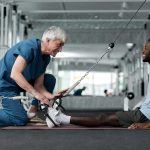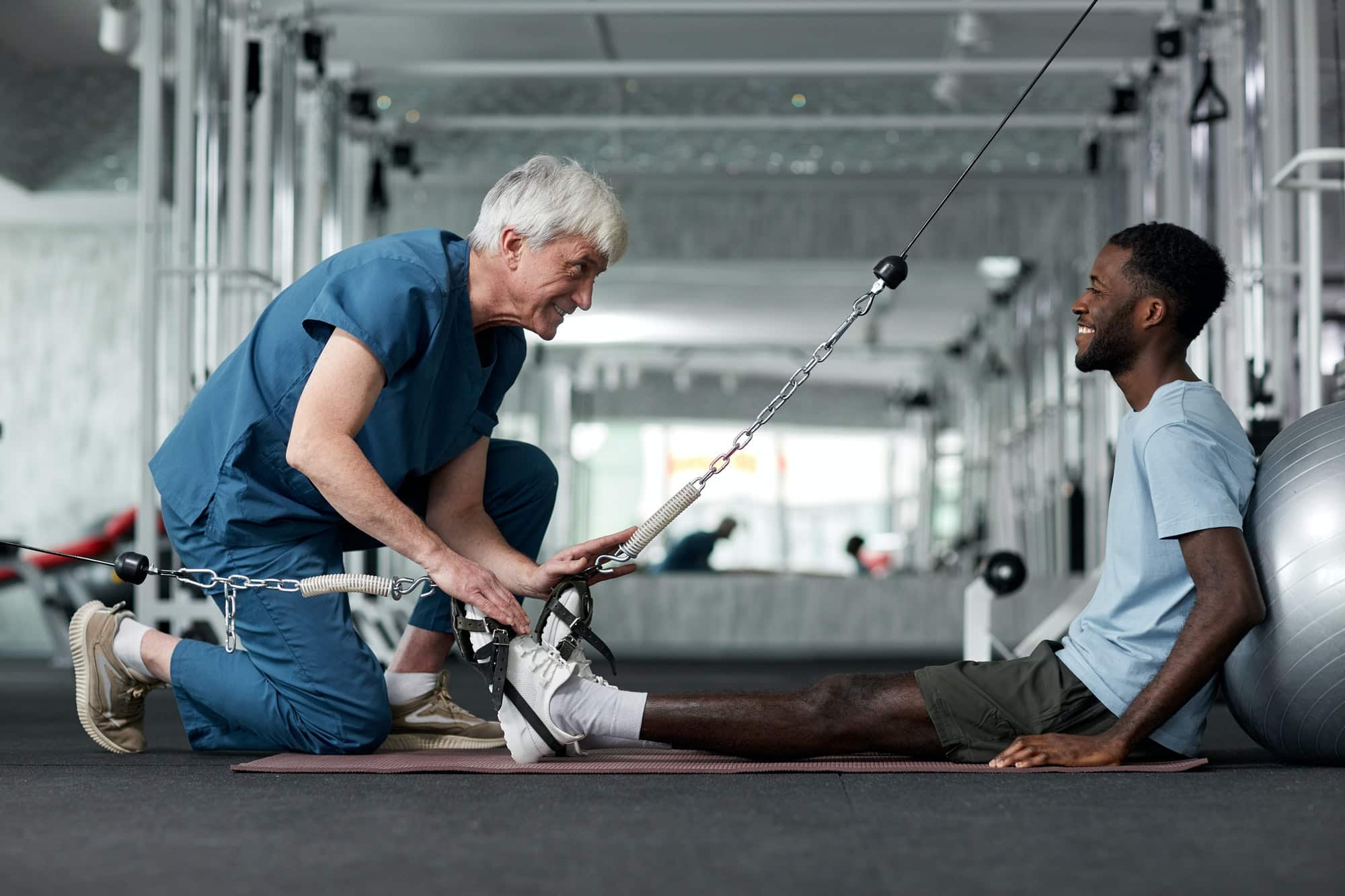The post-military life presents unique challenges for veterans, with one of the most common issues being Post-Traumatic Stress Disorder (PTSD). PTSD is a mental health condition that is triggered by a terrifying event, such as warfare, which is unfortunately often experienced by military personnel. For veterans grappling with PTSD, the path to healing may seem hard to envision. Yet, research suggests that physical activities and team sports can offer significant benefits, playing a crucial role in the recovery process.
This unique intersection of exercise and mental health offers promising results and is gaining increased attention from health scholars and institutions. From renowned health databases like PubMed and Crossref to tech giants like Google, data is being compiled and analysed on this subject, enriching our understanding and helping create effective strategies to aid veterans with PTSD.
Sujet a lire : How Can Real-Time Stroke Analysis Change the Way Swimmers Train for the Olympics?
The Prevalence of PTSD Among Veterans
PTSD is a pressing concern among veterans. It’s not an isolated issue but something that affects a significant number of individuals who have served in the military. A study that you can find on PubMed reveals that nearly 20% of veterans who served in recent conflicts report symptoms of PTSD or depression.
Understanding how widespread this issue is among veterans underscores the urgency of finding effective ways to support these individuals. If not addressed properly, PTSD can lead to serious health issues, including anxiety, depression, and even suicide.
A voir aussi : What Are the Unique Nutritional Needs of Professional Ballet Dancers During Performance Seasons?
The Link Between PTSD and Exercise
Over the years, researchers have established a clear link between physical activity and mental health. Exercise is now recognized as a powerful tool for managing stress and anxiety, which are common symptoms in people with PTSD.
A lot of the data supporting this link comes from studies indexed on Crossref and PubMed. These studies consistently show that exercise has mental health benefits. It promotes the production of endorphins, chemicals in the brain that act as natural painkillers and mood elevators. For veterans with PTSD, regular physical activity can aid in the reduction of stress, anxiety, and other PTSD symptoms.
Team Sports as Therapy
Among physical activities, team sports hold a special place. They involve physical exercise while also promoting social interaction, teamwork, and a sense of belonging, all of which are crucial for mental health.
In a study available on PubMed, participants who engaged in team sports reported better mental health outcomes than those who engaged in solo activities. A similar study indexed on Crossref found that team sports can help reduce symptoms of PTSD, including intrusive memories and heightened anxiety levels.
The Role of Group Dynamics in Healing
The value of team sports transcends the physical activity aspect. These sports also bring veterans together, creating a community of individuals who can relate to each other’s experiences.
It is well-documented that social support plays a critical role in managing and recovering from PTSD. Feeling connected to others aids in reducing feelings of isolation, a common problem for those dealing with this disorder. The camaraderie and togetherness fostered in a team sport setting can be particularly therapeutic for veterans with PTSD.
Making Team Sports Accessible to Veterans
With the clear benefits of team sports for veterans with PTSD, it’s essential to make these activities accessible. Institutions and organizations can play a major role in this regard by sponsoring team sports events, providing training resources, and creating platforms where veterans can connect and engage in these activities.
Google has already stepped up in this area, with initiatives aimed at encouraging veterans to take up sports. By leveraging their technology, they can connect veterans from different locations and enable them to participate in virtual sports events.
While there’s much still to be done, the focus on promoting team sports among veterans with PTSD is a positive step towards enhancing their quality of life. By combining physical activity, social interaction, and the spirit of teamwork, these sports offer a holistic approach to dealing with PTSD symptoms.
The Power of Adaptive Sports
Adaptive sports, specifically tailored for people with disabilities, hold incredible potential for veterans grappling with PTSD. These include activities like wheelchair basketball, sitting volleyball, and more, enabling individuals with physical restrictions to fully participate and enjoy the physical and psychological benefits of team sports.
In a study available on PubMed, veterans who participated in adaptive sports reported significant improvements in their mental health. The study further highlights that the participants experienced a reduction in PTSD symptoms and improved overall quality of life.
Another peer-reviewed article available on Crossref Google Scholar echoes these findings, suggesting that adaptive sports can contribute to improved self-esteem and a sense of achievement. The study emphasizes that the combination of physical activity, teamwork, and overcoming challenges inherent in adaptive sports can foster resilience, which is crucial for veterans with PTSD.
The Department of Veterans Affairs in the United States has been an active proponent of adaptive sports and sponsors numerous programs. By offering grants and resources to organizations, they strive to make these activities more accessible to veterans. Moreover, the existence of international events like the Invictus Games highlights the global recognition of adaptive sports as a powerful tool to support veterans’ mental health.
Technology’s Role in Making Sports Accessible
Technology, particularly when harnessed by companies like Google, can play a pivotal role in making sports accessible to veterans with PTSD. With the advent of virtual reality and other immersive technologies, the scope of what constitutes a "team" can be expanded beyond physical proximity.
One such initiative by Google involves leveraging augmented reality to enable veterans to participate in sports events despite geographical constraints. Google’s technology allows veterans to join a virtual team, compete in sports, and benefit from the camaraderie and team spirit typically associated with physical team sports.
Furthermore, Google’s search engine capabilities can be used to connect veterans with local sports groups, promote adaptive sports programs, and share resources related to PTSD recovery. Making use of Google Scholar, veterans and their supporters can access a wealth of research articles, like those available on PubMed and Crossref, to better understand PTSD and the benefits of physical activity.
Conclusion
The journey to healing from PTSD post-military service can be daunting for many veterans. However, research and real-life experiences continually reinforce the significant benefits of team sports in managing this mental health condition. Physical activity not only offers a release for stress and anxiety but also stimulates the production of mood-enhancing endorphins. Coupled with the social engagement and sense of belonging fostered in team environments, sports offer a multi-faceted approach to managing PTSD symptoms.
Adaptive sports, which allow individuals with physical constraints to participate, and the use of technology to connect veterans to sports resources, are promising advancements. As companies like Google continue to innovate and institutions like the Department of Veterans Affairs promote sports for veterans, the future looks hopeful. Ultimately, the goal is to enhance the quality of life for veterans with PTSD, acknowledging their service and ensuring they have access to the resources and support they deserve.











